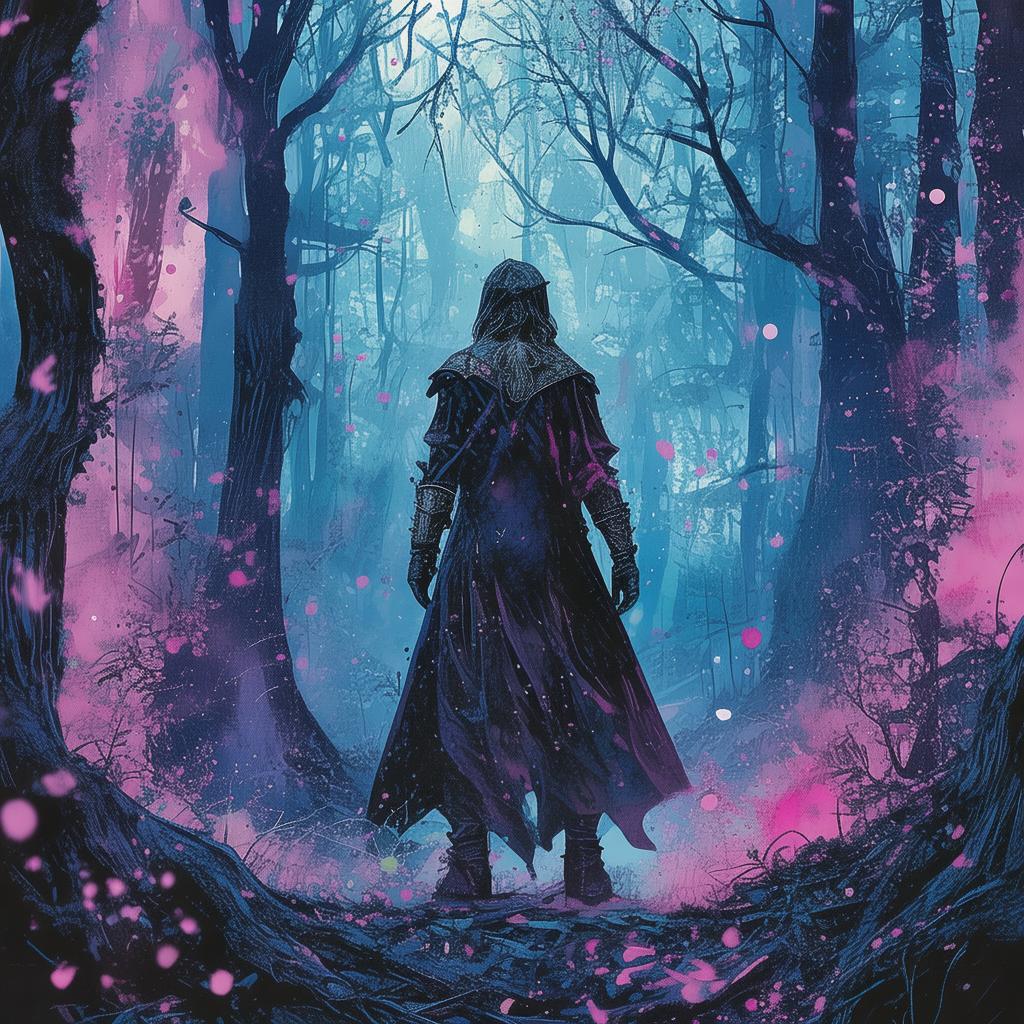Whispers of the Wuxi Stage: The Enigma of the Phantom's Lament
The air was thick with the scent of tea and the distant echo of the Wuxi Opera. In the heart of the ancient city, there stood a dilapidated theater, its walls adorned with faded posters of the Phantom's Lament. The story of the Phantom, a mysterious figure who appeared in the midst of tragedy, had long been a staple of the Wuxi stage, captivating audiences with its blend of love, loss, and mystery.
In the 1930s, a young actress named Liang Yueru found herself entwined in the Phantom's legend. She was cast as the tragic heroine, Mei Lian, whose love for the Phantom was as enduring as it was doomed. Liang was no ordinary actress; she possessed a rare gift that allowed her to channel the spirit of the Phantom during her performances, leaving the audience in awe.
One evening, as the theater dimmed, and the stage was bathed in moonlight, Liang took the stage. Her voice was like a siren's call, weaving through the audience, drawing them into the world of the Phantom's Lament. The Phantom, a ghostly figure, appeared to her, his presence as palpable as the air itself.
"You are the one," he whispered, his voice a mere rustle of silk.
Liang knew the Phantom's words were more than just a part of the play. They were a promise, a connection to a past she could barely fathom. She was drawn to him, as if her very soul was entwined with his destiny.
As the weeks passed, Liang and the Phantom's encounters grew more frequent. She felt his touch, the warmth of his hands, and the strength of his gaze. Yet, she knew that their love was forbidden, that their union could only be a fleeting illusion, a dance with the shadows.
One fateful night, the Phantom revealed the truth of his existence. He was not just a spirit of the past, but a man who had once been a warrior, whose love for Mei Lian had been as passionate as it was tragic. In life, they had been separated by a cruel fate, and now, in death, they were destined to be together.
"I am the Phantom," he said, his voice breaking with emotion. "And you are my Mei Lian."
Liang's heart swelled with love and sorrow. She knew that their love was a mirage, a fleeting glimpse of happiness in a world that was otherwise barren of joy. But she also knew that she could not turn her back on him.
"We will love in silence, in the shadows," she replied, her voice filled with resolve.
The Phantom's Lament became her life, her existence a mere reflection of the play. She performed night after night, her soul intertwined with the Phantom's, their love a beacon of hope in a world shrouded in darkness.
But as the years passed, Liang began to fade. The Phantom, too, felt the weight of time, his spirit growing weaker with each passing day. They knew that their time was fleeting, that the Phantom's Lament would soon be no more.
On the night of the final performance, Liang stood on the stage, her eyes brimming with tears. She knew that this would be the last time she would dance with the Phantom, the last time she would hear his voice.
As the curtain fell, the Phantom's spirit enveloped her, his warmth a balm to her aching heart. In that final moment, they shared a silent vow, a promise that their love would endure beyond the veil of death.

And so, the Phantom's Lament continued to be told, a tale of love and loss that captivated audiences for generations. The spirit of the Phantom and the soul of Liang Yueru remained intertwined, a testament to the power of love that transcends time and space.
In the heart of the ancient city, where the Wuxi Opera still thrived, the legend of the Phantom's Lament lived on. It was a story that spoke to the heart, a reminder that even in the face of loss, love can endure, a whisper of hope in a world that sometimes seems devoid of it.
The theater, once dilapidated, had been restored to its former glory, a beacon of tradition and culture. The Phantom's Lament was no longer just a play; it was a testament to the enduring power of love, a story that would be told for generations to come, a reminder that the past is never truly gone, but a part of us that will always remain.
✨ Original Statement ✨
All articles published on this website (including but not limited to text, images, videos, and other content) are original or authorized for reposting and are protected by relevant laws. Without the explicit written permission of this website, no individual or organization may copy, modify, repost, or use the content for commercial purposes.
If you need to quote or cooperate, please contact this site for authorization. We reserve the right to pursue legal responsibility for any unauthorized use.
Hereby declared.









